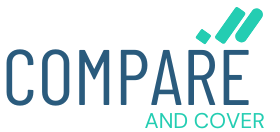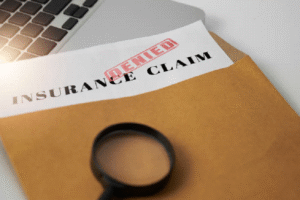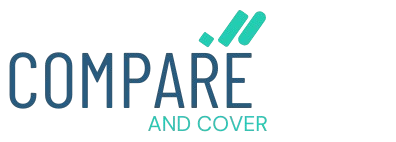Buying a home is one of the biggest financial decisions you’ll ever make. And with that comes the responsibility to protect your investment—and your financial future. But when it comes to insurance, the terms mortgage insurance and homeowners insurance often get mixed up. They sound similar but serve very different purposes.
If you’re wondering “What’s the difference between mortgage insurance and homeowners insurance?” or why you might need both, you’re in the right place. This guide will clear up the confusion and help you understand how these two types of insurance work, what they cover, and why each is important.
What Is Mortgage Insurance?
Let’s start with mortgage insurance—sometimes called private mortgage insurance (PMI) for conventional loans or mortgage insurance premium (MIP) for FHA loans.

Who Does Mortgage Insurance Protect?
Mortgage insurance protects the lender, not you. It’s designed to reduce the risk for the bank or mortgage company in case you can’t keep up with your loan payments.
When Is Mortgage Insurance Required?
Most lenders require mortgage insurance if your down payment is less than 20% of the home’s purchase price. Why? Because a lower down payment means the lender is taking on more risk—they’re lending you more money relative to the home’s value.
How Does Mortgage Insurance Work?
If you fall behind on payments and eventually default on your loan, mortgage insurance helps cover the lender’s losses. It does not protect your home or belongings—it’s purely to protect the bank.
How Much Does Mortgage Insurance Cost?
Mortgage insurance costs vary but are typically between 0.3% to 1.5% of the original loan amount annually, added to your monthly mortgage payment. This means if you have a $300,000 loan, PMI could cost you $75 to $375 per month.
Can You Cancel Mortgage Insurance?
Yes! For conventional loans, once you’ve built up enough equity (usually 20% to 22% of the home’s value), you can ask your lender to cancel PMI. For FHA loans, mortgage insurance premiums may last for the life of the loan, depending on your down payment.
What Is Homeowners Insurance?
Now, let’s talk about homeowners insurance. This one is all about protecting you and your home from the unexpected.
What Does Homeowners Insurance Cover?
Homeowners insurance typically covers:
-
Property damage: Damage to your home from fire, storms, vandalism, or other covered events.
-
Personal belongings: Your furniture, electronics, clothes, and other possessions if they’re stolen or damaged.
-
Liability protection: If someone gets hurt on your property and sues you, this insurance helps cover legal fees and damages.
-
Additional living expenses: If your home becomes unlivable after a covered loss, your policy may pay for temporary housing and related costs.
Is Homeowners Insurance Required?
While homeowners insurance protects you, lenders usually require it as a condition of your mortgage. This is because the home itself is collateral for the loan, and lenders want to ensure it’s protected against damage.
How Much Does Homeowners Insurance Cost?
The cost depends on many factors like your home’s location, age, size, coverage limits, and deductible. On average, U.S. homeowners pay about $1,200 to $1,500 per year, but this varies widely.
Mortgage Insurance vs. Homeowners Insurance: Key Differences
| Feature | Mortgage Insurance | Homeowners Insurance |
|---|---|---|
| Who It Protects | The lender | The homeowner |
| What It Covers | Loan default if you can’t pay | Damage to your property, belongings, liability |
| Requirement | Often required if down payment < 20% | Required by lenders but protects homeowner |
| Cost | Added to mortgage payment | Paid separately or bundled with mortgage |
| Duration | Can be canceled once you build equity (conventional loans) | Continuous coverage as long as you own the home |
Why Do You Need Both?
You might be thinking, “If mortgage insurance protects the lender, why do I also need homeowners insurance?” The answer is simple: they protect different parties and risks.
-
Mortgage insurance protects the bank’s money if you stop paying.
-
Homeowners insurance protects your property and belongings from damage or loss.
Skipping homeowners insurance could leave you vulnerable to devastating costs from fire, theft, storms, or lawsuits. On the other hand, skipping mortgage insurance usually isn’t an option if you have a low down payment and want to get approved for your mortgage.
How to Manage the Costs of Both Insurances
Balancing mortgage insurance and homeowners insurance costs can feel overwhelming. Here are some tips to manage your expenses:
-
Make a larger down payment: Putting down 20% or more can help you avoid mortgage insurance altogether.
-
Shop around for homeowners insurance: Compare multiple quotes to find the best coverage at the best price.
-
Bundle policies: Some insurers offer discounts if you combine homeowners insurance with auto or other policies.
-
Raise your deductible: A higher deductible can lower your premium—but be sure you can afford the out-of-pocket cost if you file a claim.
-
Request PMI cancellation: Once you have enough equity, ask your lender to cancel mortgage insurance.

Final Thoughts: Protecting Your Home and Your Investment
Buying a home is a huge milestone—and protecting it requires understanding the different kinds of insurance involved.
-
Mortgage insurance is there to protect your lender and is usually a temporary cost if your down payment is below 20%.
-
Homeowners insurance protects you, your home, your belongings, and your finances from unexpected events.
By knowing the differences and why each is important, you can make smarter decisions and better protect your investment and peace of mind.
If you’re about to buy a home or currently have a mortgage, take time to review both your mortgage insurance requirements and homeowners insurance policies. Ask questions, shop smart, and get the right coverage for your unique situation.





